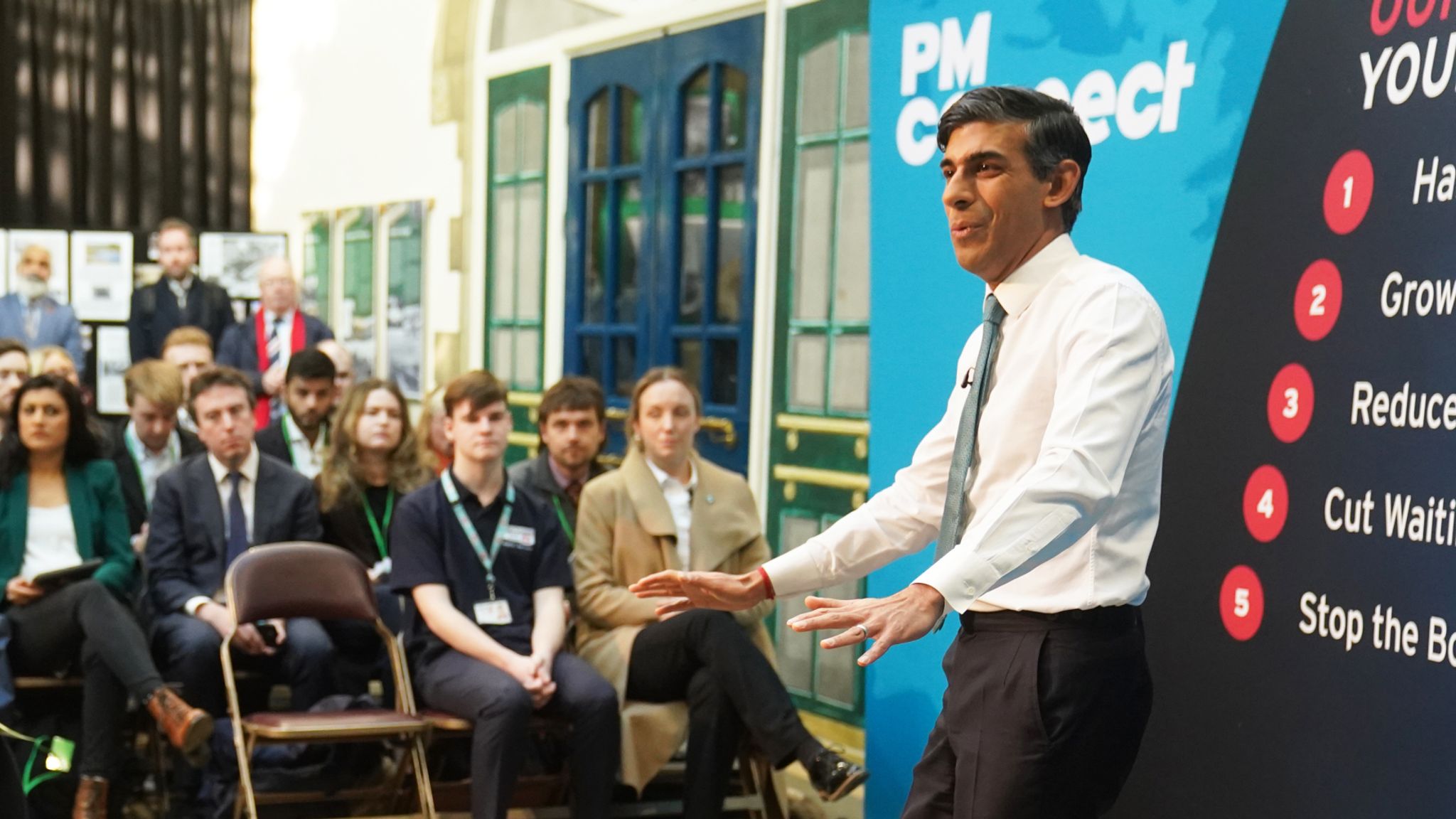As part of the latest £2.1bn of support for projects, almost £362m will be spent in London and the South East, while £354m will go to the North West. But on a visit to Lancashire to promote the announcements, Rishi Sunak said he is committed to levelling up across the UK.
In Westminster, big levelling up funding decisions – of the sort announced today – are revealed to MPs on a soulless spreadsheet and generate brief, perfunctory gratitude from a handful of members in the Commons.
These documents are seized on primarily for patterns and national trends, provoke automatic anger from the losers – and there are always losers in this process – and the whole subject descends into a party political row about political bias in funding decisions.
That’s just how SW1 does politics, whatever the subject.
But for those who live and work and run businesses in the shadow of the 111 projects which got a share of the £2.1bn funding pie just announced, today was a profound milestone.
You only have to step foot on Morecambe seafront to understand the potential benefits from the £50m funding announced for this corner of the UK as part of today’s package, and sense that residents know the area is being given an important second chance.
Without prompting, they talk of the decision meaning a return to the heyday 50 years ago when Morecambe was a destination resort for large swathes of the United Kingdom, home of perhaps the largest swimming pool in Europe alongside a promenade and beach with views of the Lake District across the bay.
The £50m in central government will replace the much loved, internationally iconic swimming pool with a contemporary landmark with even more global reach: the first Eden Project outside Cornwall.
Giant translucent domes growing rare plants are now set to arrive on an unloved corner of the Lancashire coast, with construction beginning within a year.
And for once the hope evident in the local community flowing from a political decision does not seem far-fetched.
So it was no surprise that Rishi Sunak wanted to associate himself with this outpouring of goodwill, by holding his first ‘ask me anything’ event with the public in the centre of town.
After a criticism of woodenness levelled in his first speech of the year, this was a chance to show his skills interacting with the public spontaneously.
Not for the first time in his career, Mr Sunak discovered that if you come armed with tens of millions of pounds of public money, the audience pretty much adores you.
Almost every question from the locally invited audience began with a tribute to the Eden Project decision, with the prime minister beaming as he delivered a paean to the future of the town.
Just as he became the most popular politician in the country after rolling out the COVID furlough scheme, so too was he seemingly the most popular politician today in Morecambe.
He looked relaxed and at home: spending money meant he knew he’d face a favourable crowd.
There was a reason he gave three TV interviews today as well as hosting a live event.
But the challenge for Mr Sunak is that he doesn’t have cash to splash everywhere in the country, and whilst the spread of awards had less obvious party political purpose than decisions of the Johnson era, the losers still complained.
One Tory MP told me that by funding a mixture of Tory southern seats and Labour areas, he was worried Mr Sunak was not maximising resources to help at the ballot box.
West Midlands Mayor Andy Street said it showed “the begging bowl culture was broken”.
By appearing to widen the target for funding to include London and the South East, he even blurred the central mission for levelling up set by predecessor Boris Johnson, making it a harder sell.
But the trickier question for Mr Sunak is whether he gets the credit.
Projects like the one in Morecambe have been worked on for years. Bids have been painstakingly submitted via the local council. High-profile local figures are already associated with each project.
Does a flying visit and three regional TV interviews generate enough of a political return, given the £2bn investment?
All of this on a day when suddenly the PM is refusing to recommit to HS2, seen by some as the spine of the levelling up project, either in answer to my or subsequent reporters’ questions.
Levelling up has always lacked definition, and today Rishi Sunak has broadened the scope for who needs help under the project to include the South East.
Claiming political credit for this was never going to be easy: did today make it harder?
Source: SKY







